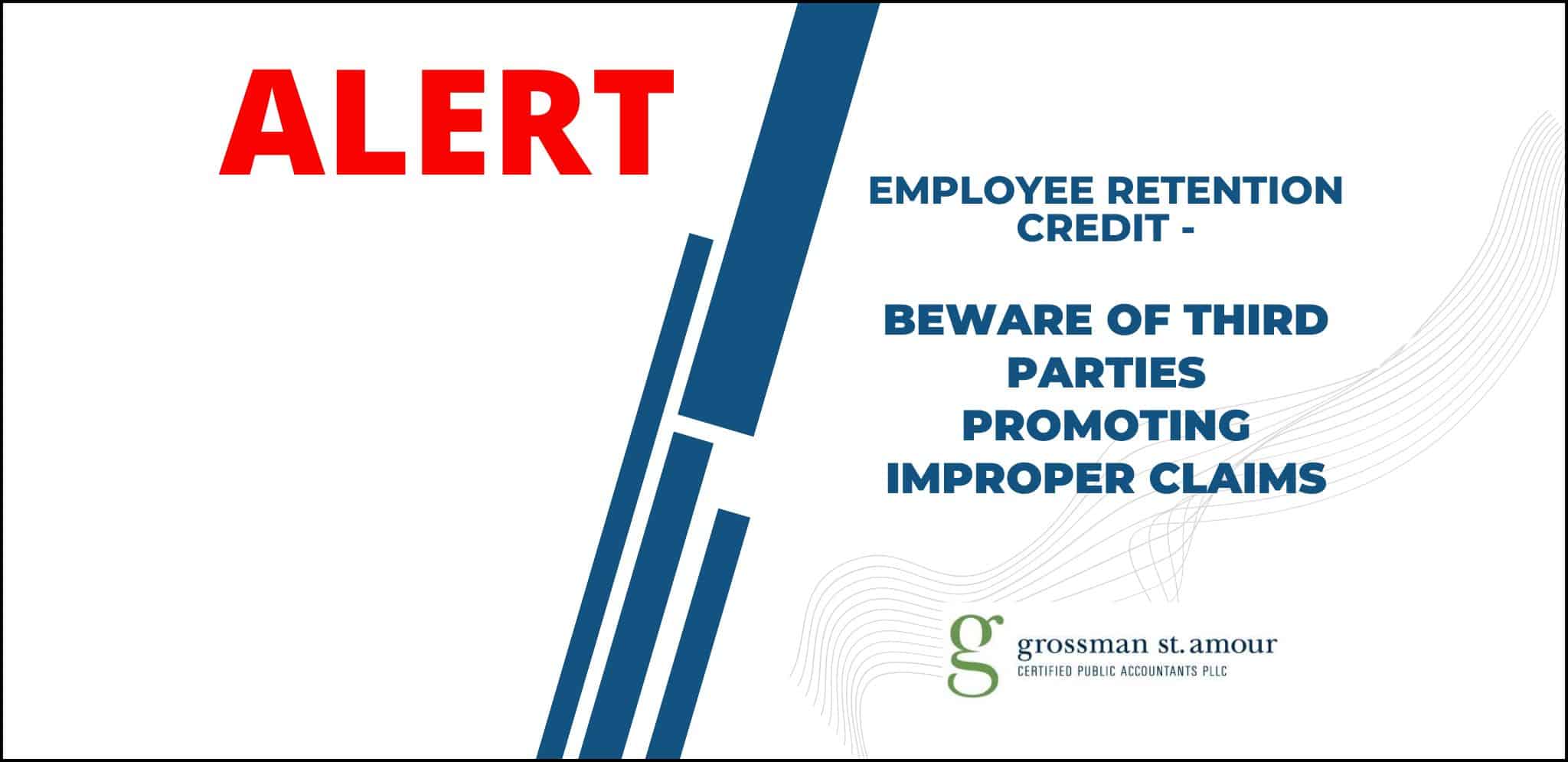On October 19, 2022, the IRS issued a warning to employers urging them to be cautious of the advice they receive from third party companies regarding the Employee Retention Credit (ERC). The IRS was quoted as saying, “Some third parties are taking improper positions related to taxpayer eligibility for and computation of the credit.”
Advertised schemes and direct solicitations should be met with caution. Offers made by these third party companies are often too good to be true. The IRS explains, “These third parties often charge large upfront fees or a fee that is contingent on the amount of the refund and may not inform taxpayers that wage deductions claimed on the business’ federal income tax return must be reduced by the amount of the credit.” It should be noted that upfront fees paid to these third parties may never be recovered, if for example the IRS later determines that the credit has to be paid back.
When an employer claims the ERC, they are required to reduce the deduction for wages on the tax return by the amount of the credit for the year in which the wages apply. Therefore, it is necessary to amend the tax returns. Furthermore, claiming the Employee Retention Credit improperly may require that taxpayers repay the credit along with penalties and interest.
The statute of limitations for the IRS to audit the Employee Retention Credit is extended to 5 years, which is longer than the 3 year statute of limitations for income tax returns. There is a risk that not only would you have to pay the credit back, but if the credit gets audited after the statute of limitations on the tax return has closed, employers could potentially lose out on the tax deduction.
Background on the Employee Retention Credit
Congress passed the CARES Act in March 2020, which included the ERC to encourage businesses to keep employees on the payroll during the pandemic.
Businesses who continued paying employees while shut down due to the COVID-19 pandemic or had significant declines in gross receipts from March 13, 2020 to December 31, 2021, could be eligible to receive this payroll tax credit.
There are specific criteria and limitations to qualify for the credit. Employers must meet one of two requirements:
- Operations were fully or partially suspended due to COVID‐19 related government order limiting commerce, travel or other group meetings due to COVID‐19, OR
- Has had a significant decline in gross receipts. An employer becomes eligible under a significant decline in gross receipts for 2020 in the quarter in which gross receipts were less than 50% compared to the same calendar quarter in 2019.
The IRS made it easier to claim the ERC in 2021, dropping the decline in gross receipts to less than 20% compared to the same calendar quarter in 2019.
Click here to view our ERC Guide to assist in understanding the eligibility requirements of the Employee Retention Credit.
If you have been solicited by or taken advisement from a third party regarding the Employee Retention Credit, or believe that your business may be eligible for the Employee Retention Credit, contact our tax professionals today at 315.424.1120 or [email protected] for more information.
As a certified public accounting firm located in central New York, Grossman St. Amour CPAs PLLC has been in business for decades. The firm provides businesses and individuals with accounting, audit, taxation, business formation and valuation, financial planning, and fraud examination and deterrence services. For more information about how Grossman St. Amour CPAs PLLC can be of service to you, contact our professionals at 315.424.1120 or [email protected].




 by
by 